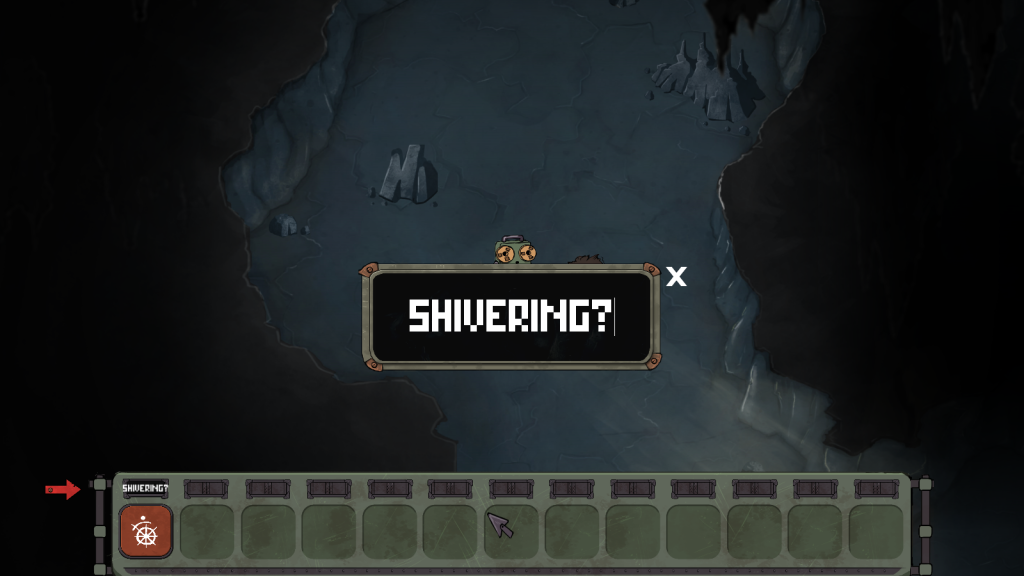

Uni is a Twine game about a nonbinary unicorn lady's first day at college. Probably the most interesting things about it for me personally are fairly tied together. I want to describe Uni's tone as "mixed," but that isn't quite right. It finds some amount of balance between the 'personal' tone that a lot of Twine employs, and a more oppositional tone that a lot of other Twine employs. I liked that mixture, even though the two rarely appeared immediately juxtaposed. The only possible exception is when the player attempts to apologize. The other aspect is slightly more (videogame) formal. Uni looks very much like it was built in Twine 2.0, and it does a thing that I don't remember seeing much in Twine games: it assumes the use of the built in back buttons. There are certain paths that branch to an end and yet are still written like they mean for the player to continue onwards. I found this incredibly baffling at first, and not in a bad way. That oppositional tone mixes with the game's design choice to use the UI in a neat way, I think, especially since so much of the tone (this is a shitty word; I am using it in a literary criticism sense) is directed at the player for things like invading the privacy of the character.

Engare is a line-drawing puzzle game by Mahdi Bahrami. It has something of an oleomingus aesthetic and the interactions reminded me, at least somewhat, of the work of Talha Kaya. I was really bad at it, but it was pretty and seemed neat.
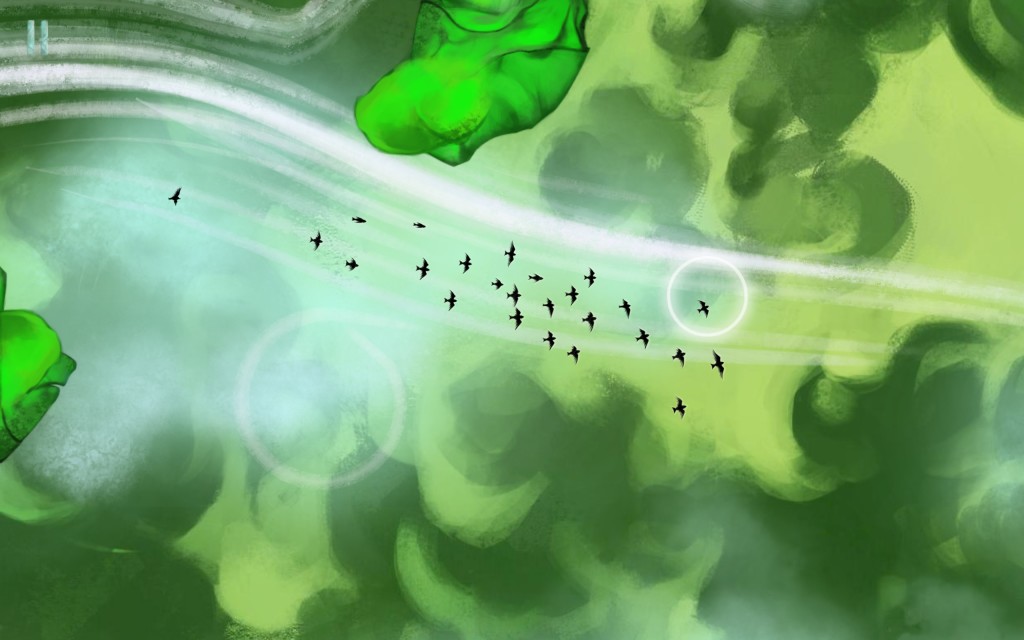
Gathering Sky is a painterly birdflocking sim. I have no idea if it does anything other than drops you into a painting as a bird and asks you to figure out how to move and gather birds; if it does, that's a shame. As you fly around, lines will appear that will guide you. Touching or getting near other birds will have them join you. Sometimes other little lines will appear that you can touch and eventually they pop and maybe ding against a crystal and that's nice. Sometimes you fly through big cloud banks.
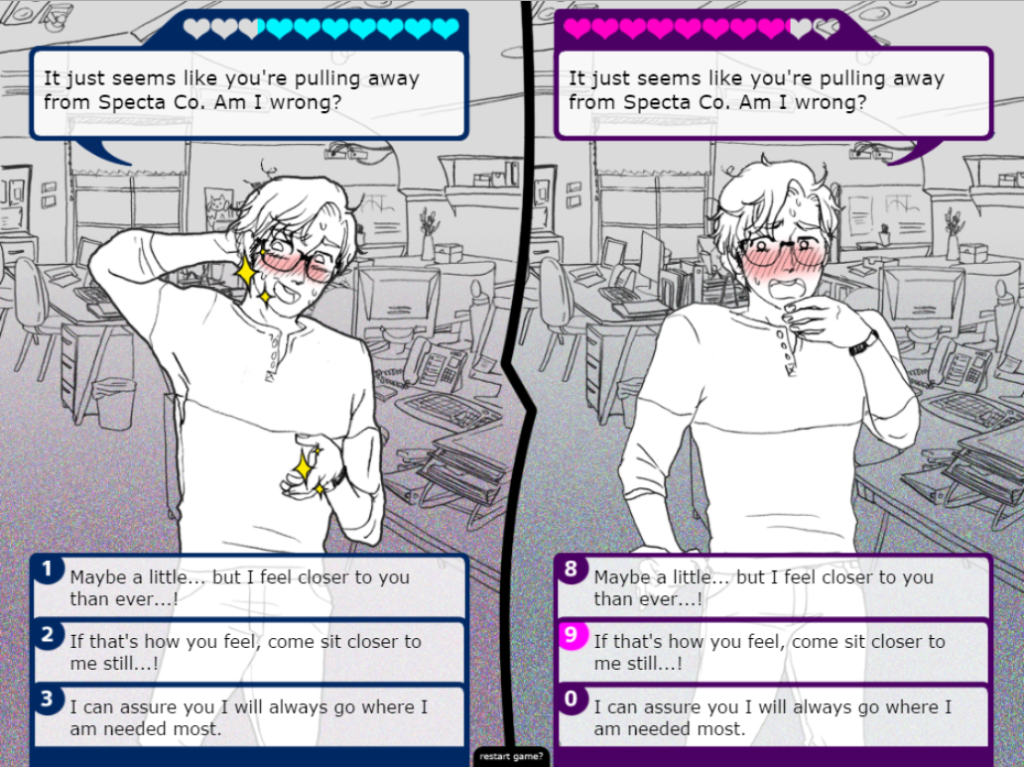
Blush or Burn is a Visual Novel where you competitively flirt with another player on the same keyboard. I played it alone, so I was mostly trying to figure out if it was just rock paper scissors with the three options each player had or something less straightforward. I really failed to determine whether it was because it was cute and I was too distracted.
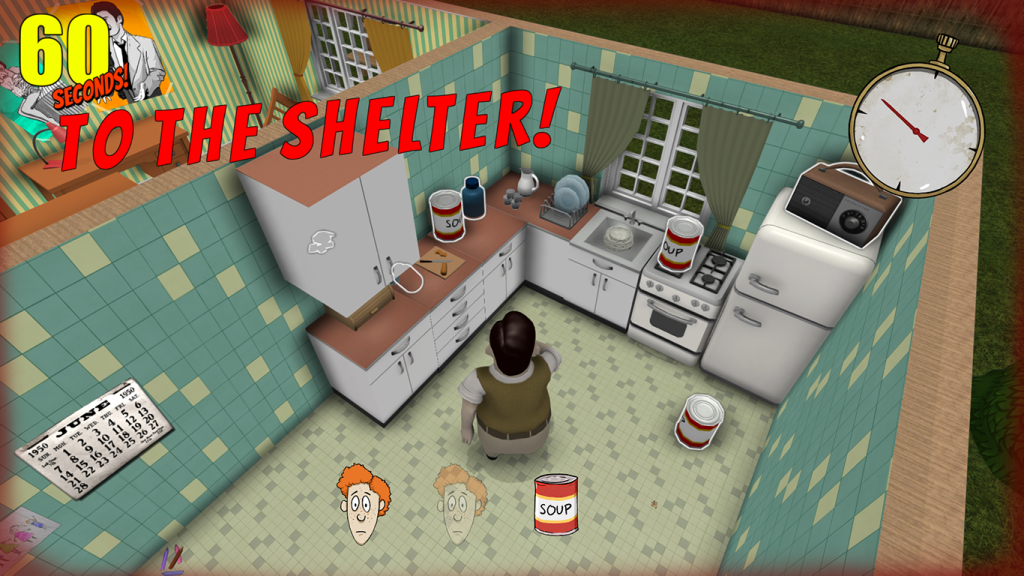
60 Seconds! is a timed 3D dash-and-grab and survival Visual Novel. The dash-and-grab is neat since you are looting your own home. It kind of controls like a PSX Rugrats videogame. That's not a bad thing, I think. The survival game that it leads into seems to be the bulk of the game, and involves resource management based on the things got during the dash-and-grab. There's wandering around and little cute storytelling bits there. That part seemed okay.
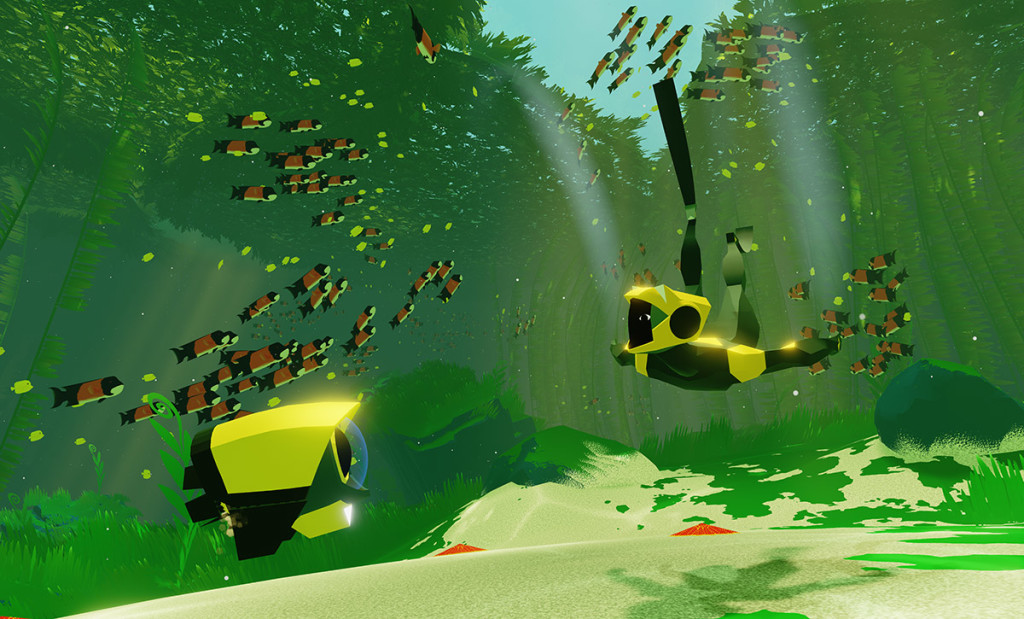
Abzû lets you be in a school of fish and ride a manta ray. I've been playing Aquanaut's Holiday a lot lately so I got kind of excited about this. Aquanaut's Holiday is more my speed, but Abzû seemed neat too. The game is gorgeous, and it controls in a way that might be called swimmy. Moving around in the world is neat. I played it passing off the controller with someone who wasn't super familiar with the Dualshock controller, and she was clearly struggling, but not in a necessarily negative way. The big concern I have about Abzû after the demo is, presumably, going to be its selling point. The game seems like it is going to be the sort of thing that is advertised according to its Emotional Narrative and Emergent Gameplay. If they don't do that – if they allow it to exist on the strength of its awkwardness and beauty – I still won't play it because I don't have a Playstation 4, but I'd be much more disappointed in missing it.
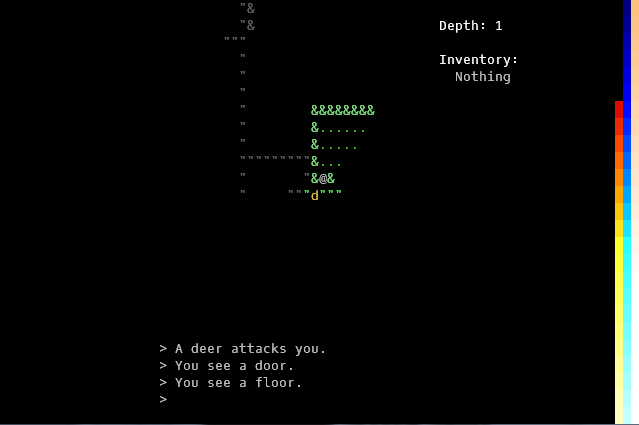
Seven Day Band is a 7 Day Roguelike in the style of Angband. The gimmick is that you develop the game as you play it. As you wander around the ASCII world and discover things, they can be changed; you name the enemy initially, and determine how strong they are and so on. The person manning the booth – who I'm fairly certain was the developer – explained to me that his motivation was his assumption that when most people say they want to make a game, what they mean is that they want to change the content on an existing structure. Then I played it and he spent the whole time arguing about evolution and voluntary human extinction with some randos? That was weird. The idea behind the game is incredibly neat though, although I don't know how much I dug the implementation, no matter how much Dungeon Crawl: Stone Soup I've been playing.